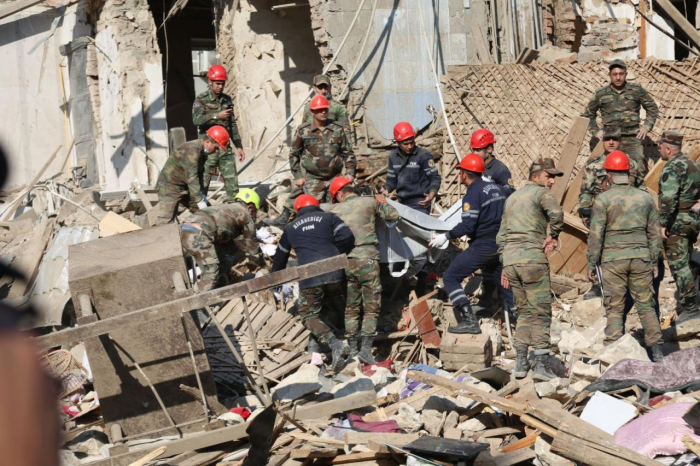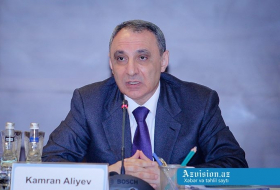The event held with the participation of the Azerbaijani community commemorated the martyrs who died for the liberation of our lands, as well as the innocent victims of terrorist acts, with a minute of silence and prayers.
Expressing support for Azerbaijan's just struggle, the participants strongly condemned Armenia's aggressive and terrorist policy. Heavy artillery shelling of the Ganja and Barda cities, as well as other settlements of Azerbaijan by the Armenian army and targeting civilians, was assessed as a crime against humanity.
Armenian Armed Forces launched a large-scale military attack on positions of the Azerbaijani army on the front line, using large-caliber weapons, mortars, and artillery on Sept. 27.
Azerbaijan responded with a counter-offensive along the entire front. As a result of retaliation, Azerbaijani troops liberated a number of territories previously occupied by Armenia, as well as take important, strategic heights under control.
The fighting continued into October 2020, in the early days of which Armenia has launched missile attacks on Azerbaijani cities of Ganja, Mingachevir, Khizi as well as Absheron district.
The conflict between the two South Caucasus countries began in 1988 when Armenia made territorial claims against Azerbaijan. As a result of the ensuing war, the Armenian Armed Forces occupied 20 percent of Azerbaijan, including the Nagorno-Karabakh region and seven surrounding districts.
The 1994 ceasefire agreement was followed by peace negotiations. Armenia has not yet implemented four UN Security Council resolutions on the withdrawal of its armed forces from Nagorno Karabakh and the surrounding districts.
More about: #ArmenianAggression
















































